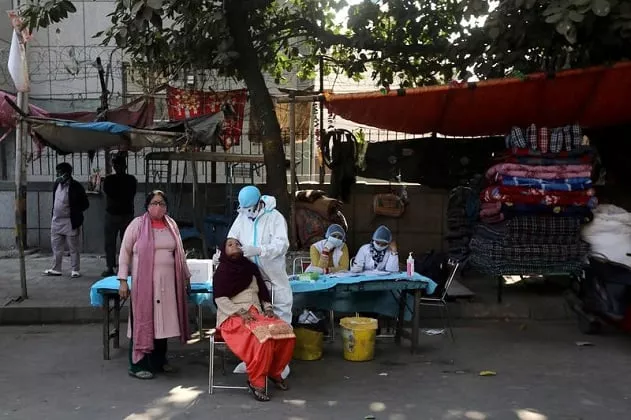Over half in New Delhi may have had Covid, government survey suggests
According to a government survey, coronavirus antibodies have been detected in 56.13% of the city’s population
NEW DELHI:More than half of New Delhi’s 20 million inhabitants may have been infected with the coronavirus, according to a government serological survey whose findings echoed earlier private-sector research.
India has reported 10.8 million Covid-19 infections, the most anywhere outside the United States. But Tuesday’s survey, based on some 28,000 samples, suggests the true figure among its 1.35 billion population is dramatically higher and approaching herd immunity levels.
“In the fifth sero survey done in the national capital of Delhi, (coronavirus) antibodies have been detected in 56.13% of the city’s population,” Delhi Health Minister Satyendar Jain said on Twitter after the report was published.
Separate tests done on more than 700,000 people across India by diagnostics company Thyrocare Technologies showed 55% of the population may have already been infected, its chief told Reuters last week.
The World Health Organization says at least 60% to 70% of a population needs to have immunity to break the chain of transmission, though Indian officials have said a lower level can also slow the virus’s spread.
Jain said New Delhi had largely beaten Covid, and India’s daily cases and deaths fell to eight-month lows on Tuesday.
Overall it has reported 154,486 Covid deaths, giving the country a relatively low fatality rate.
One factor in that is the country’s low average age, medical experts say. Two rich states with relatively older populations - Kerala with 3,459 cases and Maharashtra with 1,948 - now account for nearly 70% of new infections.
India has vaccinated nearly 4 million people since mid-January, when it started what the government touts as the world’s biggest immunisation campaign, which aims to inoculate over 300 million people by August.


COMMENTS
Comments are moderated and generally will be posted if they are on-topic and not abusive.
For more information, please see our Comments FAQ